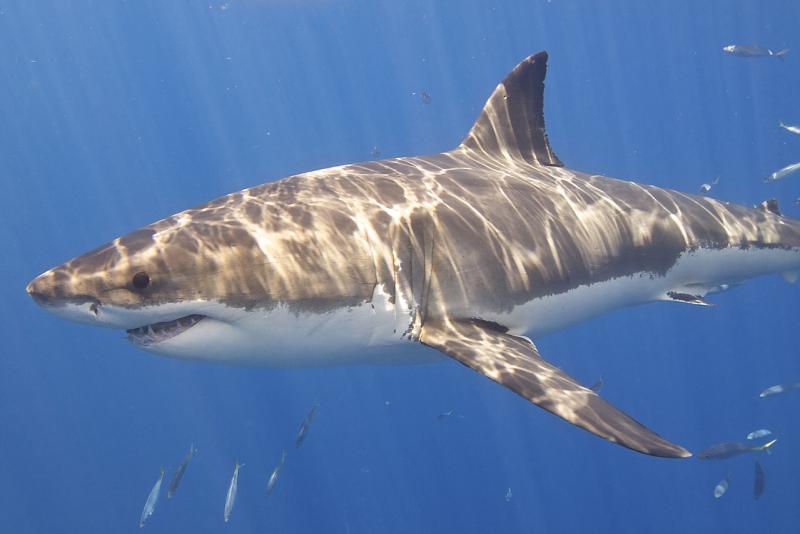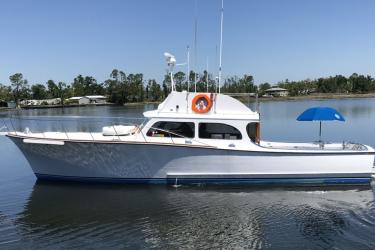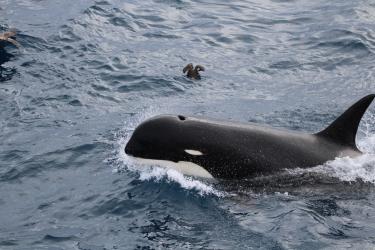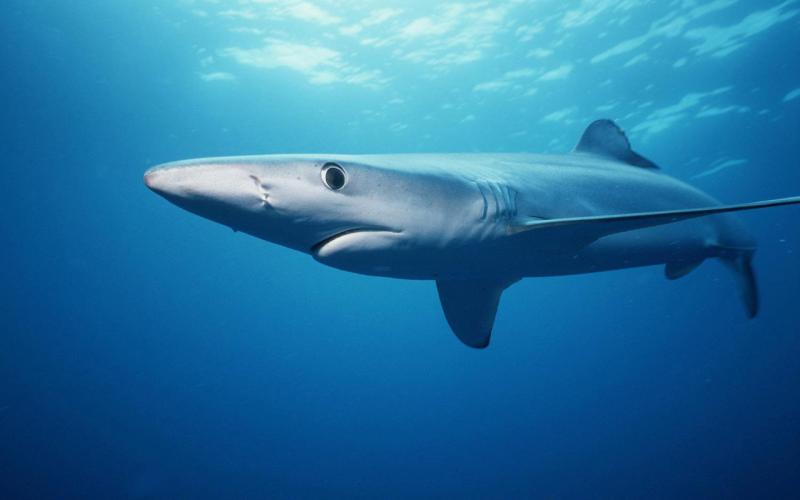If you love sharks like we do, join us in celebrating Shark Week 2019! Did you know that sharks are one of the top ocean predators? They play an important role in the food web, helping to ensure balance in the ocean’s ecosystem.

We manage commercial and recreational shark fisheries in the Atlantic Ocean and we work with three regional fishery management councils to conserve and sustainably manage sharks in the Pacific Ocean. By conducting research, assessing stocks, working with U.S. fishermen, and implementing restrictions on shark harvests, we have made significant progress toward ending overfishing and rebuilding overfished stocks for long-term sustainability.
Explore the sharktastic features below to glean something new about these amazing creatures. And while you're at it, get a closer look at how we study sharks and manage their populations.
Shark Week Features
Atlantic Spiny Dogfish Benefits from Sustainable Shark Management
Atlantic spiny dogfish are small sharks with a long and complex history in U.S. waters. They are the most commonly caught and exported U.S. shark species, but that wasn't always the case.
Learn more about Atlantic spiny dogfish

Shark Discovery May Help People with Bone Disease
Shark spine research may unlock new treatments for humans.
Learn more about new shark research

Eight Surprising Shark Facts
Did you know that some sharks have belly buttons?! Check out this list and celebrate Shark Week by learning something new.
Learn some surprising facts about sharks

Tiny Shark Fits in Your Pocket and Glows in the Dark
A team of researchers, including NOAA Fisheries' scientist Mark Grace, have now identified the small kitefin shark as the American Pocket Shark.
Learn more about the pocket shark

One-of-a-Kind Fishery Enhances Shark Science, Strengthens Sustainable Management
Fishermen, fishery managers, and scientists work hand-in-hand in the Shark Research Fishery to enhance fishing opportunities while protecting species from overfishing.
Learn more about the Shark Research Fishery

Shark Chat: How New Tech Helps Us Tag Sharks
This Shark Week, ask questions about sharks and learn more about advances in tagging technology during a tweet chat on July 31, 2019.
Get details on our upcoming Shark Week Tweet Chat

Highlighting the Cooperative Shark Tagging Program
Since 1962, the Apex Predators Program at the Northeast Fisheries Science Center has worked with volunteer recreational and commercial fishermen, scientists, and fisheries observers to tag sharks in the marine and coastal waters of New England and the Mid-Atlantic. The data collected have been instrumental in shaping what we know about shark migration and distribution.
Learn more about the Cooperative Shark Tagging Program

Shark Videos
A Symphony of Sharks
NOAA Fisheries proudly presents an ode to sharks and shark research.
A Mako Shark's Last Meal
See NOAA Fisheries biologist Antonella Preti perform a gut analysis on a 12 foot shortfin mako shark weighing 1,323 lbs. Analyzing shark stomachs helps build a database of who eats who eats who in the ocean, an essential tool in managing fisheries.
A Mako's Last Meal: Part II
In 2013, scientists discovered a sea lion in the stomach of a mako shark. Watch part 1 @ https://youtu.be/L6oov2ZmRaM In part II, see sea lion survivors, and how their wounds provide important insight on the state of sharks in southern California.



